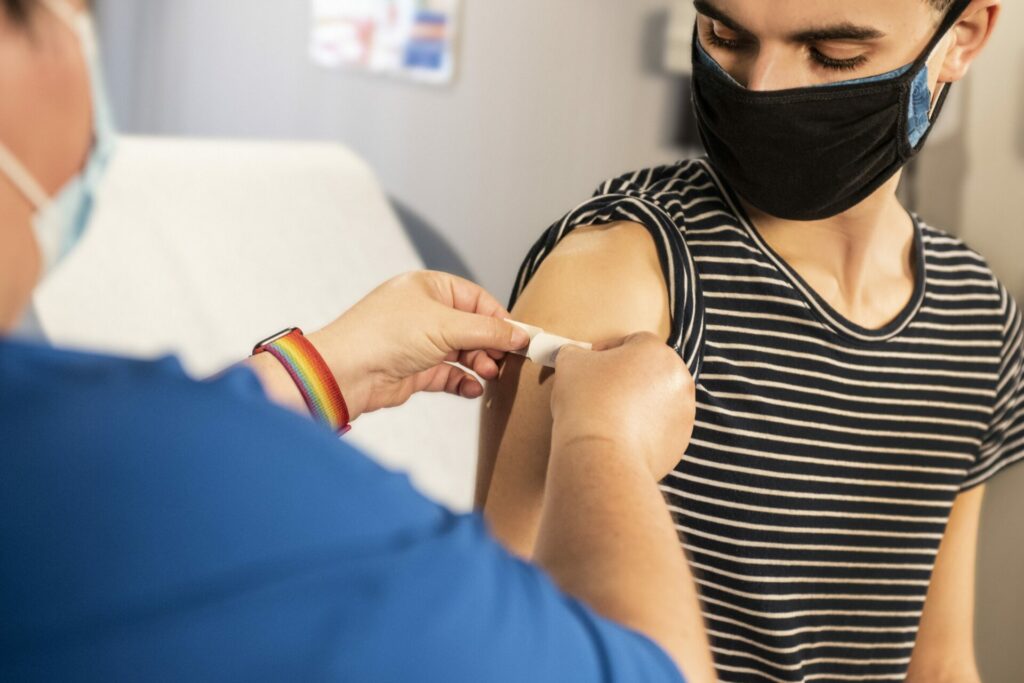From 1 August 2022, boys will also have access to free vaccination against human papillomavirus (HPV), up to and including 18 years of age, the non-profit organisation O'YES announced. No matter the gender, the vaccination is now free or refundable for all 13- to 18-year-olds.
Since 2008, the vaccine has been reimbursed by inAMI for girls in the Wallonia-Brussels Federation (FWB) up to the age of 18, but not for boys.
Until now, the reimbursement of this vaccine has been different for men and women. In September 2019, a free vaccination programme in schools was established which was open to boys aged 13 to 14 since 2019. But outside of this program, the boys had to pay €400 to get vaccinated.
For their elders, it was a lawsuit that made things happen. A young boy who was not entitled to reimbursement for this vaccine, unlike girls his age, filed a complaint, supported by the Institute for the Equality of Women and Men.
Post translation: "That's it! From 1 August 2022, boys will also be entitled to reimbursement for catch-up vaccination against human papillomavirus (HPV)! And this is until the age of 18. A big step forward in terms of health equality!"
In March 2022, the Brussels Labour Court ruled that the HPV vaccination reimbursement scheme constituted an offence under the Gender Law and the Anti-Discrimination Act. Following this, the non-profit organisation O'YES and its partners wrote a carte blanche for federal Health Minister Frank Vandenbroucke. A file has been submitted to the Drug Reimbursement Committee to request catch-up reimbursement for boys up to and including 18 years of age.
Root of the disparity
One of the reasons boys have not had access to free vaccination until now is that for a long time, medicine and the authorities thought that this virus was a "girls' problem." Today, we know that this is far from being the case.
It is estimated that up to 80% of sexually active men and women come into contact with HPV at least once in their lifetime. And it's not just a transmission problem, men's health can also be impacted.
These particularly contagious infections can cause genital warts (condylomas) and cancers in both women and men. Papillomavirus is responsible for 70% of throat cancers, according to a study published in Human Vaccines & Immunotherapeutics.
And yet, it was only in 2017 that the Higher Health Council updated its recommendations, advising to vaccinate boys between the ages of 9 and 14 as well. The European Commission is now also calling on Member States to step up HPV vaccination for girls and boys to eradicate cervical cancer and other cancers caused by HPV.
Lack of screening
Another issue is screening. In Belgium, screening remains complicated because it is not widespread.
"Most of the time, there must already be lesions or warts for us to be able to detect the presence of HPV," gynaecologist Dr. Michel Bossens said. "There are treatments, but it is the patient's immunity that plays a lot. In many cases, the virus goes away on its own, but it can take time."
According to the Sciensano website, symptoms can appear between three and eight months after infection, which is why it is important to be attentive to the appearance of pimples on the genitals and anus. Sciensano advises women to do a smear of the cervix every 3 to 5 years for 25 to 30 years and an HPV test every 5 years between 30 and 64 years. There is no screening test for men. The vaccine is the only solution besides wearing a condom.
"It's important to get vaccinated before having sexual intercourse for the first time," Danhier said.
Impact of the vaccination
There are two vaccines against HPV. They have only been available in Belgium for about ten years. Since 2010 in Flanders and since 2011 in the Wallonia-Brussels Federation. Bossens said they protect against two forms of genital warts and seven forms of cancerous lesions.
The link between the vaccine and the decrease in the number of cancers was demonstrated in a study published in 2021 in The Lancet. They observed a significant reduction in the number of cervical cancers in women since the introduction of the vaccination program in 2008. They even believe that vaccination has succeeded in almost completely eliminating this type of cancer in women under 26 years of age.
In the Wallonia-Brussels Federation, the share of young people vaccinated is increasing but is below the targets set. According to a ONE survey conducted during the 2019-2020 school year, only 54% of Secondary 2 students in FWB received a first dose of the HPV vaccine. This is 6% less than the target set, i.e., 60%.
Related News
- Vaccinopolis: University of Antwerp opens centre for vaccine studies
- Uterine cancer is fourth most common type of cancer among young women in Belgium
- Oral sex and throat cancer link increasingly apparent, UZ Leuven claims
The difference between girls and boys is not huge. 57.5% of girls are vaccinated, compared to 50.8% of boys. On the other hand, the difference is noticeable with young Dutch speakers. In Flanders, this rate reaches 90%.
"This difference is partly explained for cultural reasons. In French-speaking Belgium, there is the impact of antivax in France that has strengthened with Covid," Danhier said.
The authorities hope to achieve 80% vaccination coverage by 2025.
These findings are consistent with a recent survey conducted by O'YES. Through it, it appeared that participants do not vaccinate for three main reasons: lack of information on HPV vaccination, reluctance on the part of some parents and high price. Parents and children can find reliable and regularly updated information on the les-hpv.be website.

